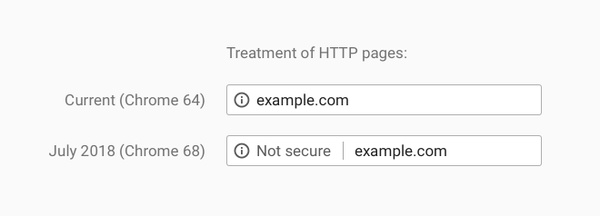
Google's crusade for a safer, more secure web has been taking place for years. Especially after the Snowden leaks everyone has been more interested of encrypted messaging and secure web traffic.
It is no surprise then that Google is about to take another step securing the entire web. The company has now announced on their Chromium blog that their upcoming browser will mark all HTTP sites as "not secure."
Starting with Chrome 68, Google's Chrome browsers will notify the user, albeit not intrusively, if they are using a website that doesn't support HTTPS connections. Currently Chrome does not inform the user about non-secure websites unless they click the information button next to the URL.
When users browse secure websites with HTTPS connection they are already notified that the connection is secure on the address bar.
Many popular websites have already transitioned to HTTPS, and that includes AfterDawn.com, but even on the top 100 websites 19 do not support HTTPS yet. Google tightening the noose around HTTP is bound to bring that closer to 100, and of course increase the overall HTTPS penetration, which currently stands at 68% on Windows and Android and 78% on Mac and Chrome OS.
Google believes that the transition is good for not only the users that get a more secure connection but also for the websites as it enables new features and improves performance.
Starting with Chrome 68, Google's Chrome browsers will notify the user, albeit not intrusively, if they are using a website that doesn't support HTTPS connections. Currently Chrome does not inform the user about non-secure websites unless they click the information button next to the URL.
When users browse secure websites with HTTPS connection they are already notified that the connection is secure on the address bar.
Many popular websites have already transitioned to HTTPS, and that includes AfterDawn.com, but even on the top 100 websites 19 do not support HTTPS yet. Google tightening the noose around HTTP is bound to bring that closer to 100, and of course increase the overall HTTPS penetration, which currently stands at 68% on Windows and Android and 78% on Mac and Chrome OS.
Google believes that the transition is good for not only the users that get a more secure connection but also for the websites as it enables new features and improves performance.













